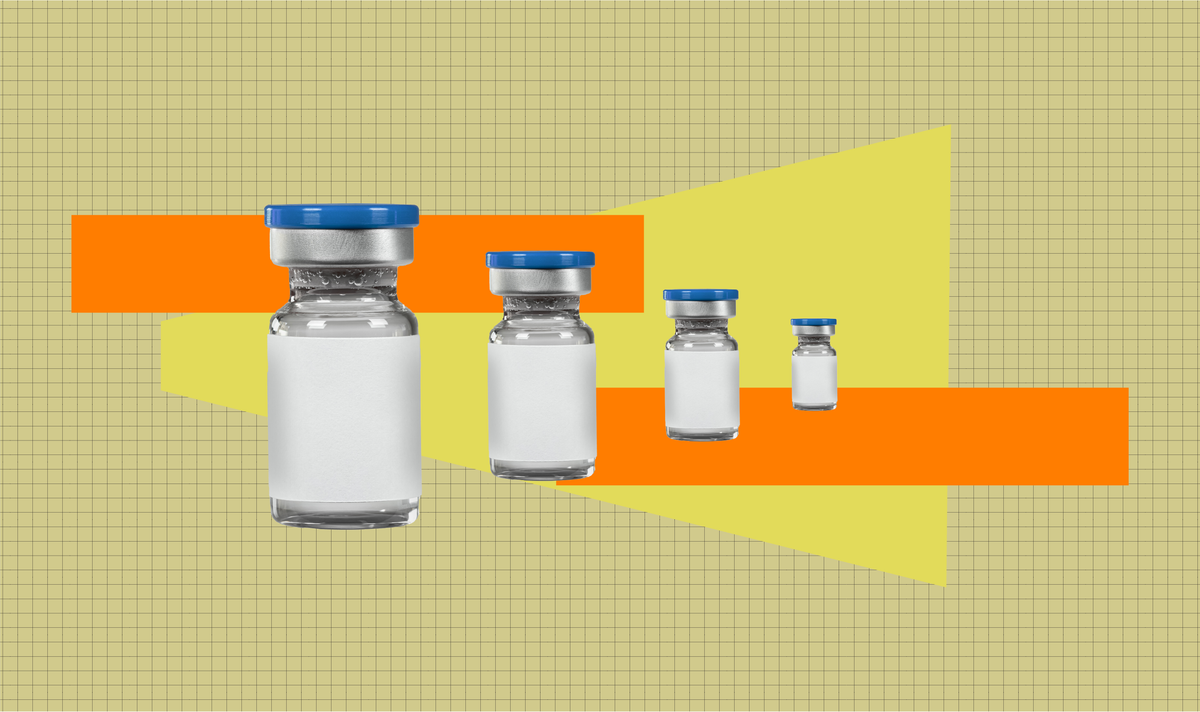FDA-updated COVID-19 vaccine guidance faces backlash
This week, myths spread about routine childhood immunizations online in response to a new CDC study and a misleading claim from the HHS secretary.

This week, myths spread about routine childhood immunizations online in response to a new CDC study and a misleading claim from the HHS secretary.
Reactions to comments from federal health officials and a promising study about the impact of RSV immunization dominated online vaccine discussions. Posts expressed concern about vaccine access and safety following reports that the FDA approved the Novavax COVID-19 vaccine with significant restrictions and that HHS may stop recommending COVID-19 vaccination for large portions of the U.S. population. The reports followed Health and Human Services Secretary Robert F. Kennedy Jr.’s promotion of a misleading claim about chickenpox vaccination during a congressional hearing. Meanwhile, a new study suggesting that RSV immunization may reduce RSV-related hospitalization in infants drew criticism from online vaccine opponents.

Insights brought to you by the reporters and science writers of Public Good News (PGN), a nonprofit newsroom dedicated to improving community health.
What’s trending in vaccine conversation:
On May 15, the Wall Street Journal reported that HHS will soon stop recommending COVID-19 vaccination for children, adolescents, and pregnant people. Although HHS representatives have not confirmed the report, the FDA commissioner said he was not “encouraging or insisting” that healthy children be vaccinated. Two days later, the FDA approved Novavax’s COVID-19 vaccine, but only for use in older adults and people aged 12 and older with at least one underlying health condition. Finally, on May 20, FDA officials announced plans to require placebo-controlled clinical trials before approving updated COVID-19 vaccines for healthy individuals, which will likely delay access to vaccines this fall. Some online responded to the report and approval restrictions with concern about COVID-19 vaccine access for children and young adults. However, many right-wing and anti-vaccine figures celebrated the news and expressed doubt about COVID-19 vaccine safety. Several users called for a full ban on mRNA vaccines, while others argued that Novavax’s COVID-19 vaccine approval should be revoked due to alleged safety concerns.
During a May 14 congressional hearing, Kennedy claimed that European countries do not recommend chickenpox vaccination because it increases shingles risk in adults. He suggested that the policy is due to data from “preclinical trials,” although he did not clarify the data or study he referenced. Social media users widely criticized Kennedy, noting that the claim is misleading and based on outdated information. Several fact checks and online users emphasized that while it is true that some countries don’t recommend chickenpox vaccines based on a theoretical risk, more recent evidence suggesting that these fears are unfounded resulted in several European countries revisiting their recommendations.
A May 8 CDC report revealed that, during the first respiratory virus season since the widespread availability of maternal and pediatric RSV immunizations, RSV hospitalizations in infants up to 7 months old were 28 percent to 43 percent lower than in pre-pandemic seasons. Among infants under 2 months, hospitalizations were reduced by 45 percent to 52 percent. The study excluded the “atypical” respiratory virus seasons between 2021 and 2023 that COVID-19 heavily impacted. Many commenters responded to the study by supporting RSV immunizations, highlighting that some experts partially credit them for the recent drop in U.S. infant mortality. However, some argued that all vaccines are “poison,” claimed without evidence that RSV immunizations cause SIDS, and argued that RSV isn’t serious. Several critics correctly noted that the study doesn’t prove that RSV immunizations caused the decrease in hospitalizations, which the study does not claim.
Read the fact checks:
- National Foundation for Infectious Diseases: COVID-19 Vaccines FAQ
- FactCheck.org: RFK Jr.’s Misleading Line on the Chickenpox Vaccine
- Public Good News: Here’s how to help protect babies and kids from RSV

Recommendations brought to you by the health communication experts behind Infodemiology.com.
Recommendations for public health professionals
Each week the Infodemiology.com team will provide messaging recommendations in response to some of the trending narratives outlined above. These helpful tips can be used when creating content, updating web pages and FAQs, and to inform strategy for messaging about vaccines.
HHS vaccine recommendations influence physician immunization practices and insurance coverage of vaccinations, in addition to public perception of vaccines. Recent FDA actions may affect COVID-19 vaccine access for millions of Americans who want to be vaccinated. Communicators may continue to emphasize that COVID-19 vaccine safety has been well-established for nearly five years and in billions of vaccinated people worldwide. Talking points may explain that COVID-19 vaccination protects people of all ages, including children, from severe illness, hospitalization, long COVID, and death.
Misleading claims about chickenpox vaccine safety from the top health official in the country may dissuade parents from vaccinating their children. Debunking messaging may explain that chickenpox vaccines are very safe, with few extremely rare serious side effects reported in the 30 years the vaccines have been in use. Speculation that chickenpox vaccination could increase shingles risk in adults is not supported by evidence, leading countries like the U.K. to begin recommending the vaccine in 2023. Emphasizing that chickenpox vaccination is 90 percent effective against infection and nearly 100 percent effective against severe illness is recommended, as is highlighting the disease’s potential severity.
Narratives that sow doubt about the safety and importance of RSV immunization may cause hesitancy that reduces uptake. Messaging may emphasize that RSV can cause severe illness in infants and young children and is the leading cause of infant hospitalization in the U.S. Messaging may also explain that RSV immunizations are safe and reduce infant hospitalization by 80 percent to 90 percent.
Interested in recommendations tailored to health care providers? Click here.
